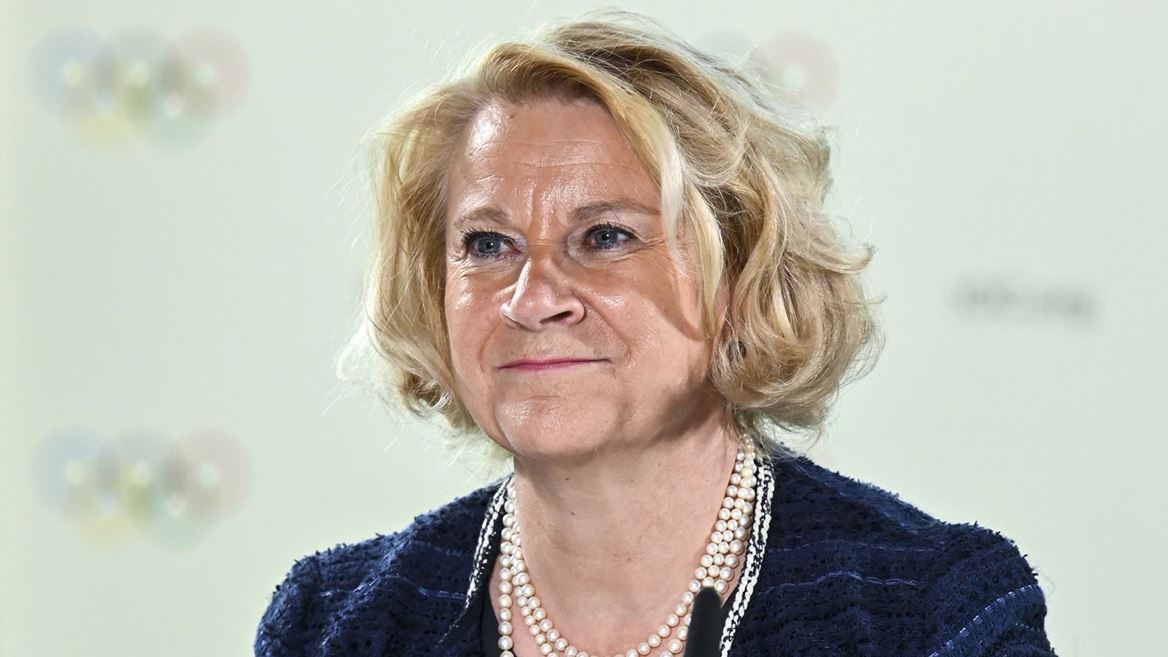Five years of IPACS – three questions to the IOC Chief Ethics and Compliance Officer

15 Jul 2022 – This year marks the fifth anniversary of the International Partnership Against Corruption in Sport (IPACS), which was created at the second IOC International Forum for Sports Integrity (IFSI) in 2017. The multi-stakeholder platform brings together international sports organisations, governments, inter-governmental organisations, and other relevant stakeholders to strengthen and support efforts to eliminate corruption and promote a culture of good governance in sport.
In light of the special anniversary, Pâquerette Girard Zappelli, IOC Chief Ethics and Compliance Officer, shared some insight on how everything started and her take on IPACS’ achievements to date.
How did the idea to create IPACS come about?
Pâquerette Girard Zappelli: The idea of a coordinated response to corruption in sport, bringing together international sports organisations, governments, relevant international organisations and other key stakeholders, was sparked by corruption scandals in some major sports federations. At the initiative of the UK Government, it then became an official agenda point during the London Anti-Corruption Summit in May 2016. Subsequently the initiative was also discussed formally during the Council of Europe (CoE) conference of ministers responsible for sport in November 2016. These two meetings paved the way for officially creating the multi-stakeholder partnership during the second edition of IFSI, organised by the IOC in Lausanne in February 2017. The initial core group was composed of the co-founding partners, i.e. the CoE, the IOC, the Organisation for Economic Co-operation and Development (OECD), the UK Government and the United Nations Office on Drugs and Crime (UNODC).
What were the first actions taken by IPACS?
Pâquerette Girard Zappelli: I remember well the very first meeting of what was then called the Informal Working Group on the International Sports Integrity Partnership (ISIP), which was held at the CoE’s premises in Paris on 21 June 2017. It was co-organised by the UK’s Department for Culture, Media and Sport, the CoE, the IOC and the OECD. Representatives from national governments, international sports organisations and intergovernmental organisations came together with the objective of finding ways to address corruption in the governance of sport.
During the meeting, the participants agreed on the official name of the “Partnership Against Corruption in Sport” (IPACS) and on the mission statement. I also remember that we discussed the idea of convening the partners in a broader plenary setting and having high-level meetings at ministerial level to leverage political will for the partnership and generate further momentum between working group meetings.
From the beginning, everyone was interested in taking a pragmatic approach, avoiding unnecessary bureaucracy and producing concrete results. Therefore, one of the first actions was to agree on the working areas of the new partnership, i.e. procurement, the awarding of major sports events and good governance. A further working meeting was organised before the end of the year in order to advance with the set-up of the three Task Forces dedicated to each working area.
The first high-level meeting, which brought together more than 100 ministers, international sports organisations and experts from around the world, took place one year later in December 2018 in London, hosted by the UK Government. In 2019, a fourth Task Force was set up, aimed at enhancing effective cooperation between law enforcement, criminal justice authorities and sports organisations.
More than 100 partners have joined IPACS during its five-year journey, including a great number of sports organisations from the Olympic Movement, up to 40 governments from all five continents and intergovernmental agencies with concrete expertise in anti-corruption.
IPACS’ ambition is to be pragmatic – what concrete output has there been to date?
Pâquerette Girard Zappelli: Yes, indeed, and there have been several concrete results, largely driven by the four Task Forces. These include good practices and guidelines for the procurement of major international sports-event-related infrastructure and services; good practice examples for managing conflicts of interest in sports organisations; a toolkit on the reallocation of sports events; the IPACS Sport Governance Benchmark with 50 recommendations and good governance guidelines on transparency, integrity, democracy development and solidarity; and the report on tackling bribery in sport, which provides an overview of relevant standards and laws. I believe we walk the talk.
Ever since it was created, IPACS has also been part of several major international conferences, discussing and tackling corruption in sport and inviting more key stakeholders to join the partnership. At an operational level, the IPACS Bureau and Support Office, and the setting-up of the official website ipacs.sport, ensure the smooth management of activities, as well as their transparent and timely communication. In a nutshell, the Bureau identifies the strategy of the partnership, the key networks to activate and the future deliverables, and discusses how to address certain challenges. The Chair of IPACS rotates, and the position is currently held by the Government of Canada.
Go to www.ipacs.sport to learn more about this multi-stakeholder partnership, its Task Forces and related activities.




